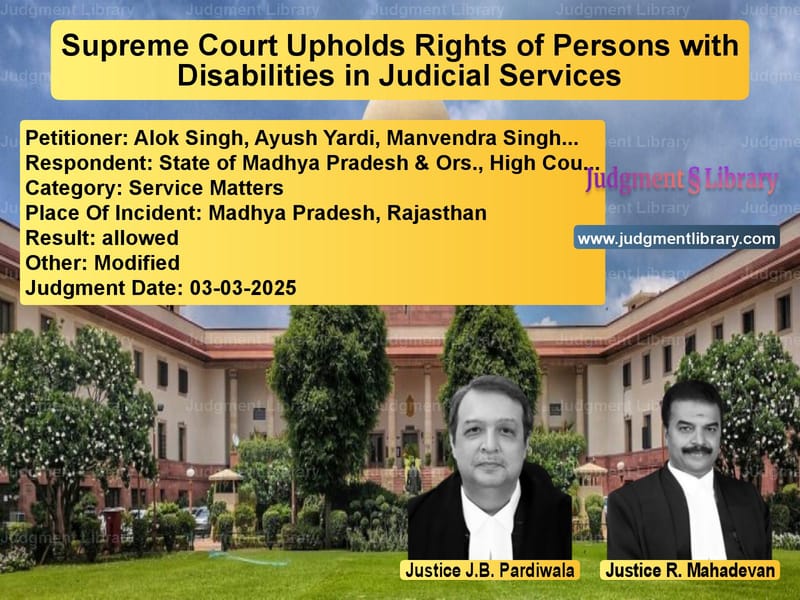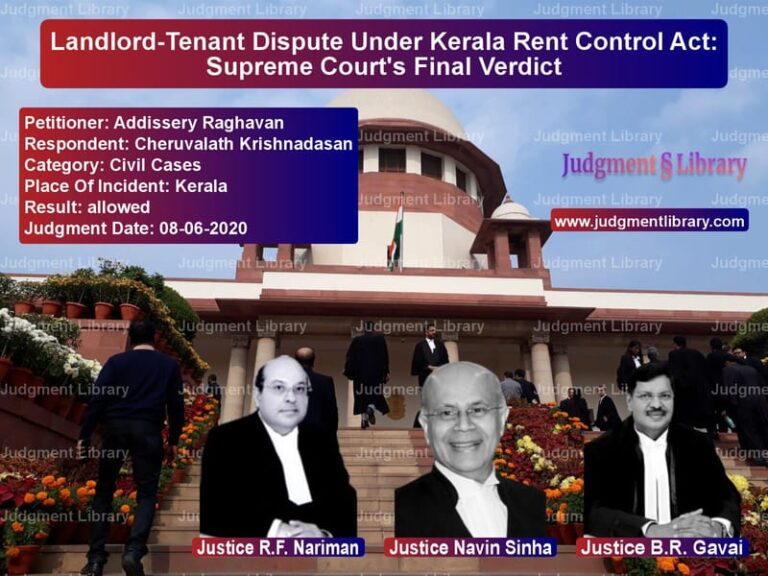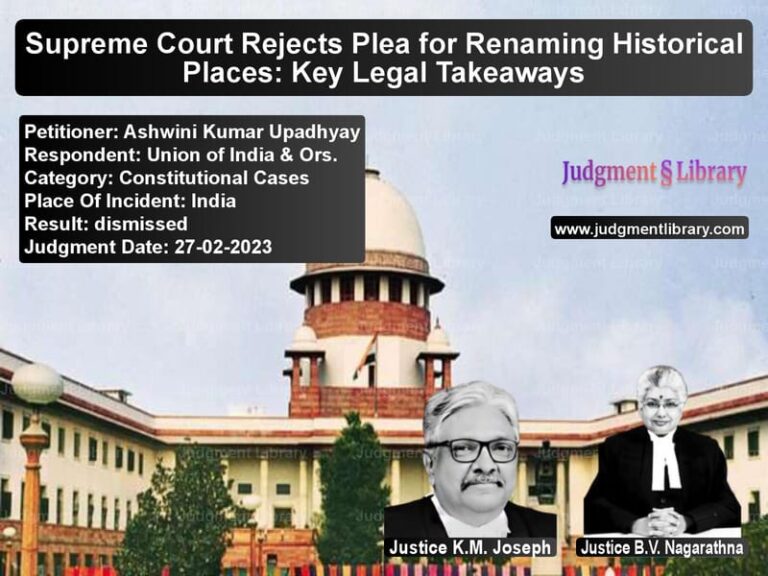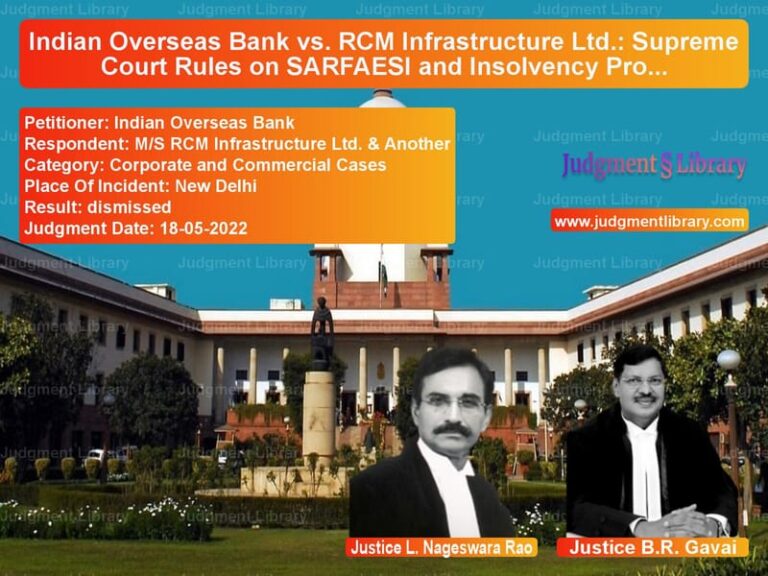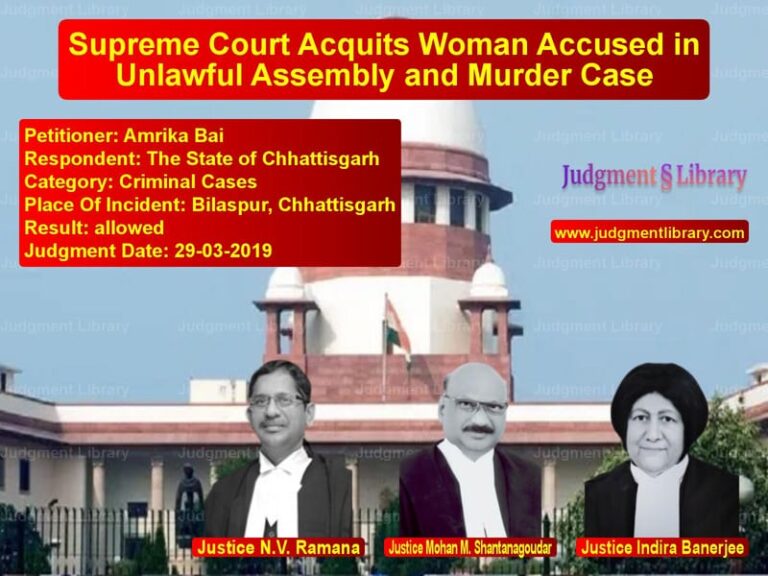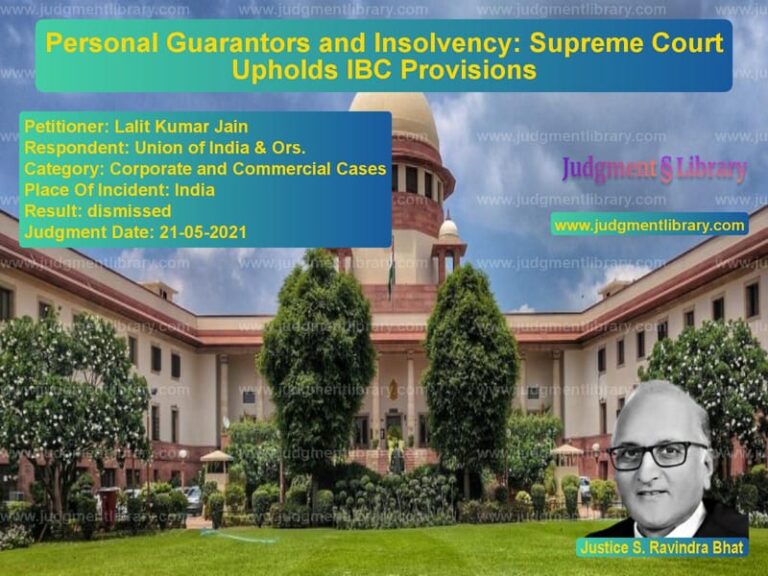Supreme Court Upholds Rights of Persons with Disabilities in Judicial Services
The Supreme Court of India recently delivered a landmark judgment in the case concerning the recruitment of persons with disabilities (PwD), particularly visually impaired candidates, in judicial services. This judgment reinforces the fundamental principles of equality, non-discrimination, and reasonable accommodation under the Rights of Persons with Disabilities Act, 2016.
Background of the Case
The case originated from multiple petitions challenging the exclusion of visually impaired candidates from judicial services, particularly in Madhya Pradesh and Rajasthan. The Madhya Pradesh Judicial Service (Recruitment and Conditions of Service) Rules, 1994, were amended in 2023 to exclude visually impaired persons from recruitment. Similarly, the Rajasthan Judicial Service failed to maintain separate merit lists and cut-off marks for PwD candidates, leading to discrimination in selection processes.
Petitioner’s Arguments
The petitioners argued that the amendments violated Articles 14, 15, 16, and 21 of the Constitution. They contended that:
- The exclusion of visually impaired candidates was arbitrary and discriminatory.
- Several other High Courts in India, including Delhi and Tamil Nadu, provided reservations for PwDs in judicial services.
- There was no reasonable justification for treating visually impaired candidates differently.
- The amendment disregarded international conventions like the United Nations Convention on the Rights of Persons with Disabilities (UNCRPD), which India has ratified.
- Many visually impaired individuals have successfully served as judges and legal professionals in India and abroad.
Respondent’s Arguments
The High Court of Madhya Pradesh defended the exclusion, arguing that:
- The nature of judicial work required full vision to assess documents, witnesses, and case materials.
- A medical expert’s opinion had deemed visually impaired persons unsuitable for judicial work.
- Exempting visually impaired candidates was necessary to maintain the efficiency of judicial services.
- The state government had the authority to amend recruitment rules as per administrative requirements.
Key Observations by the Supreme Court
The Court emphasized the principle of substantive equality and the need for reasonable accommodation. The judgment highlighted the following points:
Constitutional and Legal Framework
The Court reaffirmed that the Constitution mandates equal opportunity in employment. It referred to the Rights of Persons with Disabilities Act, 2016, which recognizes the right of PwDs to participate fully in society.
International Obligations
The Court cited the UNCRPD, which mandates non-discrimination and full participation of PwDs in public life, including employment.
Judicial Precedents
Several judgments were referenced, including:
- Vikash Kumar v. UPSC: Affirmed the principle of reasonable accommodation.
- Justice Sunanda Bhandare Foundation v. Union of India: Highlighted the state’s obligation to ensure non-discrimination.
- Rajive Raturi v. Union of India: Emphasized accessibility and inclusion in public services.
Practical Feasibility
The Court noted that visually impaired individuals have successfully worked as judges worldwide. The availability of assistive technology, such as screen readers and Braille displays, makes it possible for them to perform judicial functions effectively.
Final Judgment
The Supreme Court ruled as follows:
- Rule 6A of the Madhya Pradesh Judicial Service Rules, 1994, is unconstitutional as it discriminates against visually impaired candidates.
- Proviso to Rule 7 is invalid in so far as it imposes additional restrictions like first-attempt pass requirements and three-year practice conditions on PwDs.
- Separate merit lists and cut-off marks must be maintained for PwD candidates in Rajasthan and other states.
- PwD candidates must be given reasonable accommodation, including the use of assistive technology and scribe assistance.
- Relaxation in cut-off marks is permissible under the law, and it should be granted to PwD candidates.
- The state must amend its rules to align with the Rights of Persons with Disabilities Act, 2016.
Impact of the Judgment
This ruling sets a significant precedent in disability rights jurisprudence. It ensures that PwD candidates have equal opportunities in judicial services and prevents arbitrary exclusion based on disability. The decision will also prompt other states to review and revise their judicial service recruitment policies.
Read also: https://judgmentlibrary.com/supreme-court-rules-against-msrtc-in-unfair-labor-practice-case/
Conclusion
The Supreme Court’s decision is a landmark in upholding the rights of PwDs. By striking down discriminatory provisions and mandating reasonable accommodation, the Court has reaffirmed the principles of equality, justice, and dignity. This judgment paves the way for a more inclusive judiciary, ensuring that no one is left behind in the pursuit of justice.
Petitioner Name: Alok Singh, Ayush Yardi, Manvendra Singh Rathore & Ors., Alisha Khan.Respondent Name: State of Madhya Pradesh & Ors., High Court of Rajasthan & Ors..Judgment By: Justice J.B. Pardiwala, Justice R. Mahadevan.Place Of Incident: Madhya Pradesh, Rajasthan.Judgment Date: 03-03-2025.
Don’t miss out on the full details! Download the complete judgment in PDF format below and gain valuable insights instantly!
Download Judgment: alok-singh,-ayush-ya-vs-state-of-madhya-prad-supreme-court-of-india-judgment-dated-03-03-2025.pdf
Directly Download Judgment: Directly download this Judgment
See all petitions in Recruitment Policies
See all petitions in Public Sector Employees
See all petitions in Termination Cases
See all petitions in Employment Disputes
See all petitions in Judgment by J.B. Pardiwala
See all petitions in Judgment by R. Mahadevan
See all petitions in allowed
See all petitions in Modified
See all petitions in supreme court of India judgments March 2025
See all petitions in 2025 judgments
See all posts in Service Matters Category
See all allowed petitions in Service Matters Category
See all Dismissed petitions in Service Matters Category
See all partially allowed petitions in Service Matters Category

